
Peru: Projects that transform life in prison

A variety of projects have been developed to improve the lives of people deprived of their liberty in Peru. The initiatives range from artistic activities to protecting the environment, drawing upon the talents and needs of detained people to help them forge new paths for themselves.
The National Penitentiary Institute of Peru and the International Committee of the Red Cross (ICRC) organized a contest to help develop these pilot projects. Ten projects were selected from all over the country for detainees with specific needs being held in Ancón I (maximum security), Arequipa (women's prison), Arequipa (men's prison), Challapalca (maximum security), Huancayo, Huánuco, Lampa, Miguel Castro Castro, Sullana and Tacna (women's prison).
The projects were put forward by prison staff. Since they work directly with detainees, they understand the needs of the most vulnerable groups, including women, women with children, foreign women, members of indigenous populations, Quechua speakers, people with disabilities, older people and members of the LGBTQIA+ community.
Some projects involved community service for local governments or in the private sector, and volunteer work for professionals who were once temporary workers.
Other initiatives gave detainees the opportunity to take part in theatre, dance, tai chi, aerobics, creative writing and recycling workshops, as well as actions to promote reading and music, and physical activities. They also provided detainees with access to equipment and supplies for therapeutic and training purposes, including materials for embroidery work, food sales and mobility aids.
Certain projects worked towards improving facilities for mothers and children, laundry rooms, greenhouses, organic gardens and bathrooms. For example, support handles were installed in baths and showers, and ramps were set up in sports facilities.
These initiatives help fulfil a directive of the National Penitentiary Institute of Peru, which was developed in collaboration with the ICRC, to provide comprehensive care and specialized treatment for people deprived of their liberty and members of the prison population located outside of prisons who require special protection.
Organizing such activities not only improves the quality of life of detainees while cultivating their personal interests, but also helps them become productive members of society. It can help reduce tensions, conflicts and the monotony of prison life for both detainees and prison staff.
"We have been pleased with the execution and results of our contributions. During this period the routine of the prisons changed, we were able to verify that we had generated visibility and identification of specific needs of diverse groups of people deprived of liberty. The response of the detainees was very positive and hopeful, generating in them greater responsibility, motivation, solidarity, integration and exchange.
We remain convinced that various actions can be carried out by developing the positive potential of detained people. Although the prison space seems complex, it is always possible to achieve humane, inclusive and meaningful actions for people requiring special protection.
On the other hand, challenges remain, such as continuing to explore the potential of convening actions for social reintegration. Above all, ensuring that these actions and results are sustainable, for which it is necessary to have the will and openness of the prison authorities, active work of the prison staff, and the support of more actors, state and private. Multiple entities and people taking small but coordinated measures can be the difference in moving forward or not in responding to the needs of vulnerable groups."
Pilar De la Torre Salazar - ICRC Protection Officer
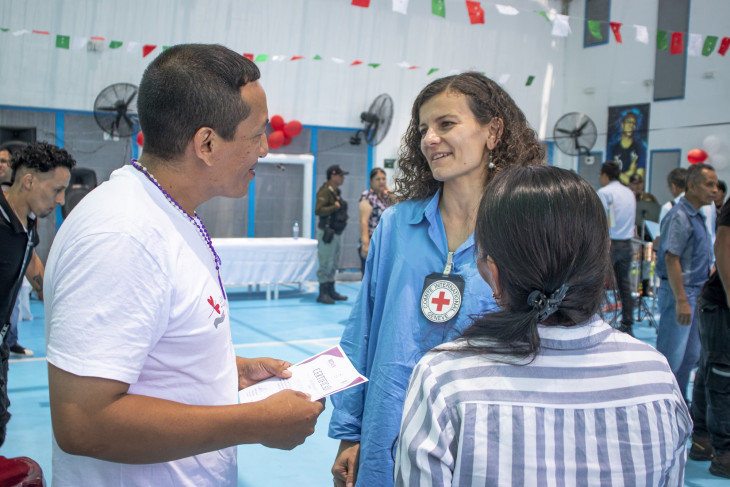
An ICRC worker talks to a person deprived of liberty and his family member, after receiving a diploma for his participation in a theater project that promotes resocialization. Photo: Jesús Moya Choy/ICRC
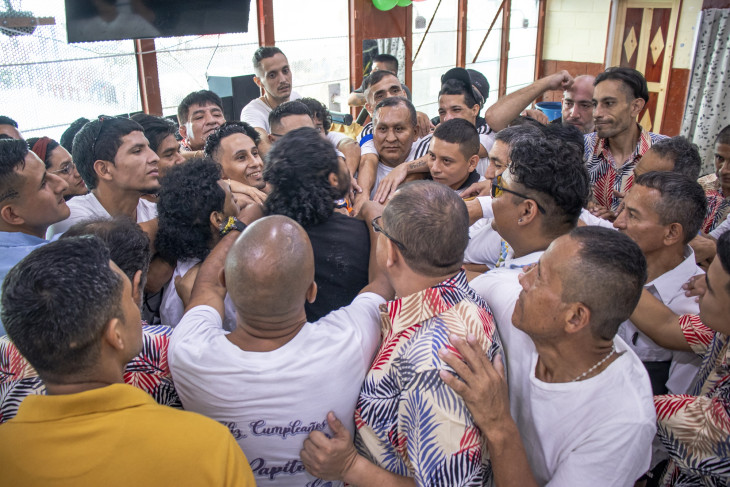
People deprived of liberty prepare together with their teacher to go out to perform in the prison courtyard in a play focused on freedom, which is part of the "Expresarte" project, in the Ancón I prison. Photo: Jesús Moya Choy/ ICRC
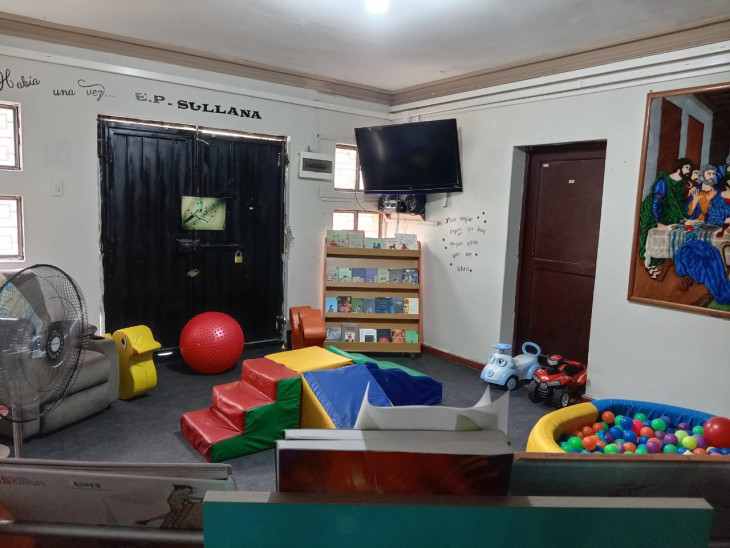
In Sullana, the "Once upon a time" project consisted of setting up a story reading space to encourage mothers to read with their children. Photo: INPE
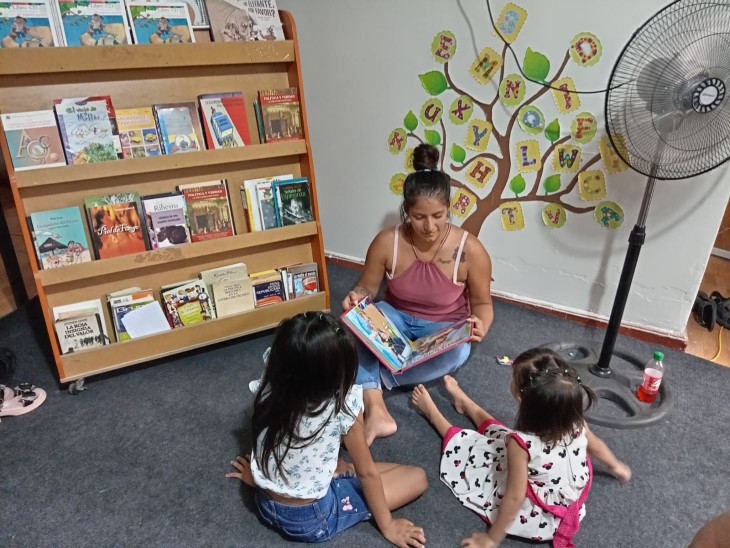
A mother uses the space set in the Sullana prison to read with her children between 3 and 8 years old. Photo: INPE
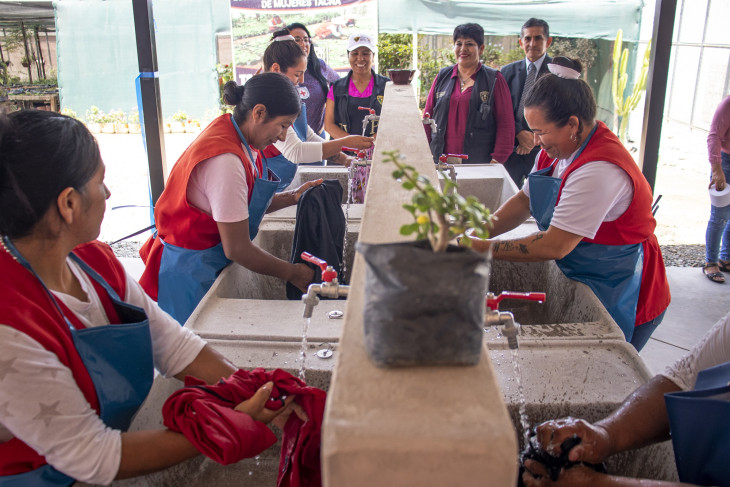
Women deprived of liberty in Tacna inaugurate a laundry space whose infrastructure was implemented to improve their livelihoods. Photo: Jesús Moya Choy/ICRC
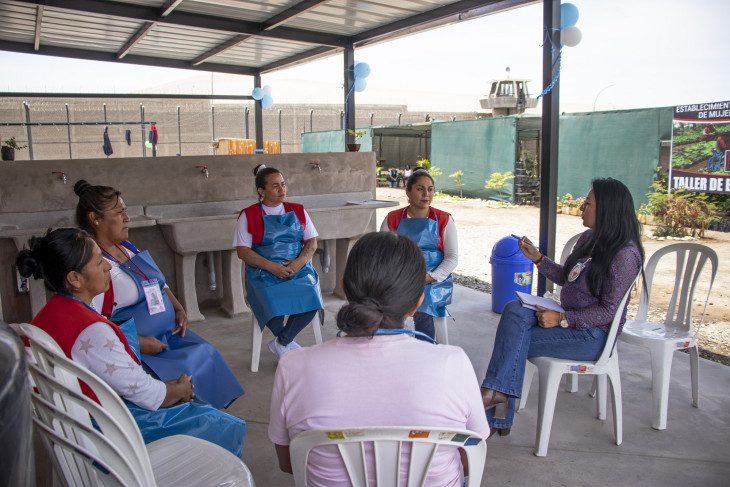
An ICRC worker talks with women deprived of liberty to learn more about their needs, after implementing a pilot laundry project in Tacna. Photo: Jesús Moya Choy/ICRC

Older adults participate in tai chi classes in the Huancayo prison, to prevent the deterioration of physical and mental health. Photo: INPE
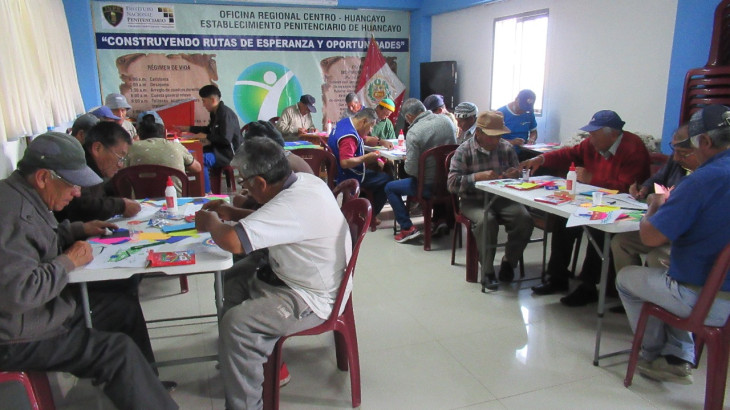
In Huancayo, older adults work on cognitive activities as part of a program with materials donated by the ICRC. Photo: INPE
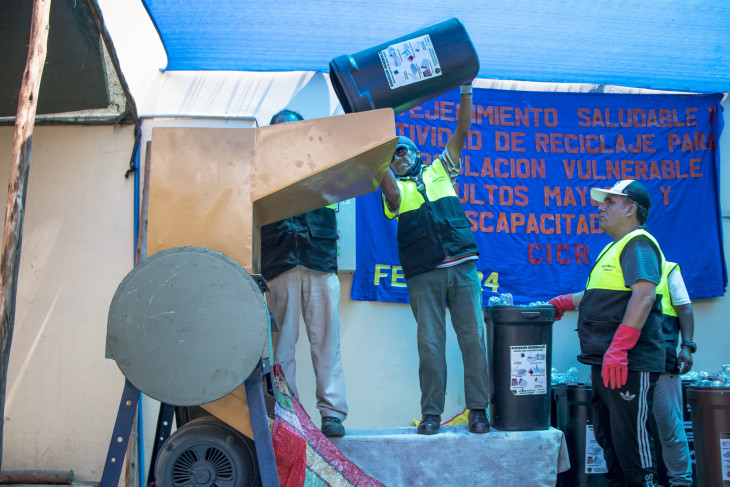
Through the "Healthy Aging" project, older men from the Arequipa prison work on plastic recycling. Photo: Jesús Moya Choy/ICRC

Through an agreement with the private sector, older adults in Tacna can access to improve their livelihoods by recycling. Photo: Jesús Moya Choy/ICRC
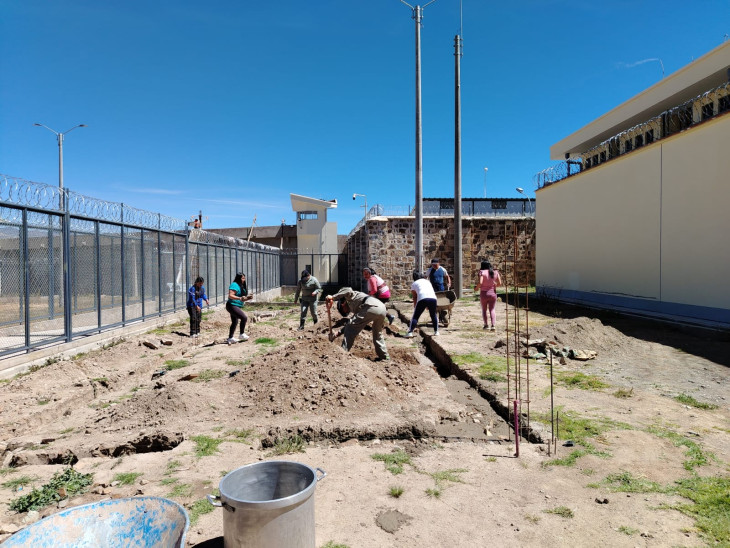
In Lampa, those sentenced to community services and women deprived of liberty are working on the construction of a greenhouse that will be used for self-consumption and marketing, for their benefit. Photo: INPE
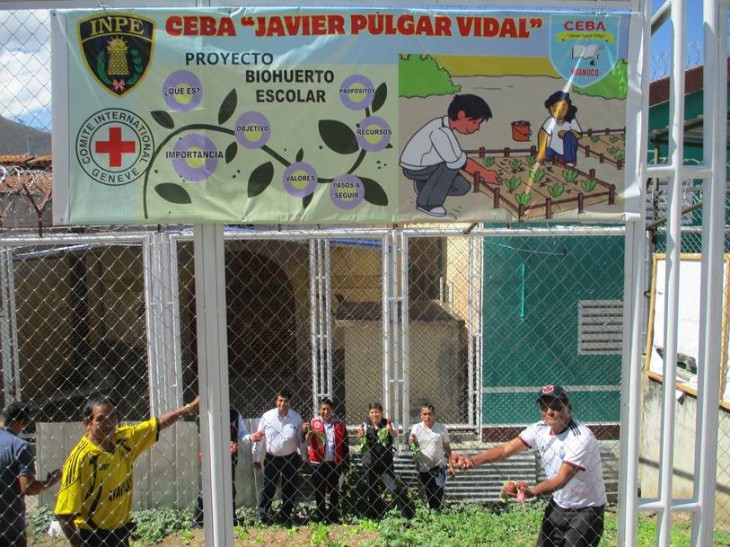
Ecological school biogarden project in the Huánuco prison. Photo: INPE
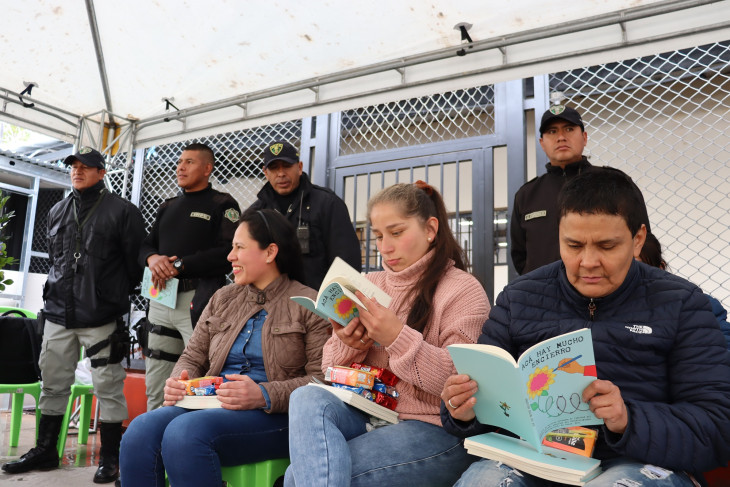
Women deprived of liberty participate in the presentation of a book written by them after some writing workshop sessions at the Jauja prison. Photo: Jose Carlos Thissen/ICRC

In Sullana, a woman deprived of liberty accesses a video call, an initiative supported by the ICRC to strengthen family ties. Photo: INPE
